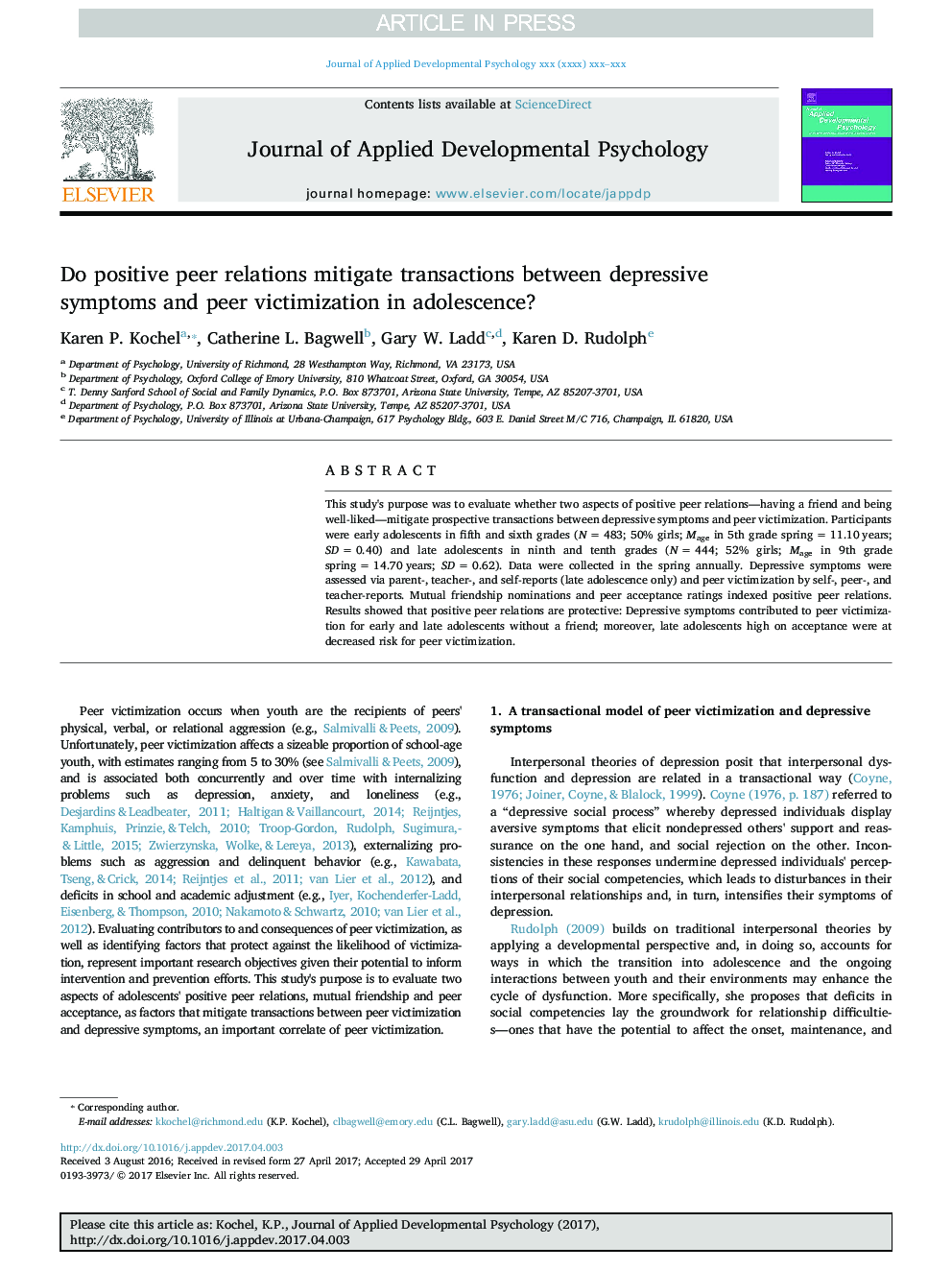| Article ID | Journal | Published Year | Pages | File Type |
|---|---|---|---|---|
| 4939113 | Journal of Applied Developmental Psychology | 2017 | 11 Pages |
Abstract
This study's purpose was to evaluate whether two aspects of positive peer relations-having a friend and being well-liked-mitigate prospective transactions between depressive symptoms and peer victimization. Participants were early adolescents in fifth and sixth grades (N = 483; 50% girls; Mage in 5th grade spring = 11.10 years; SD = 0.40) and late adolescents in ninth and tenth grades (N = 444; 52% girls; Mage in 9th grade spring = 14.70 years; SD = 0.62). Data were collected in the spring annually. Depressive symptoms were assessed via parent-, teacher-, and self-reports (late adolescence only) and peer victimization by self-, peer-, and teacher-reports. Mutual friendship nominations and peer acceptance ratings indexed positive peer relations. Results showed that positive peer relations are protective: Depressive symptoms contributed to peer victimization for early and late adolescents without a friend; moreover, late adolescents high on acceptance were at decreased risk for peer victimization.
Related Topics
Social Sciences and Humanities
Psychology
Applied Psychology
Authors
Karen P. Kochel, Catherine L. Bagwell, Gary W. Ladd, Karen D. Rudolph,
